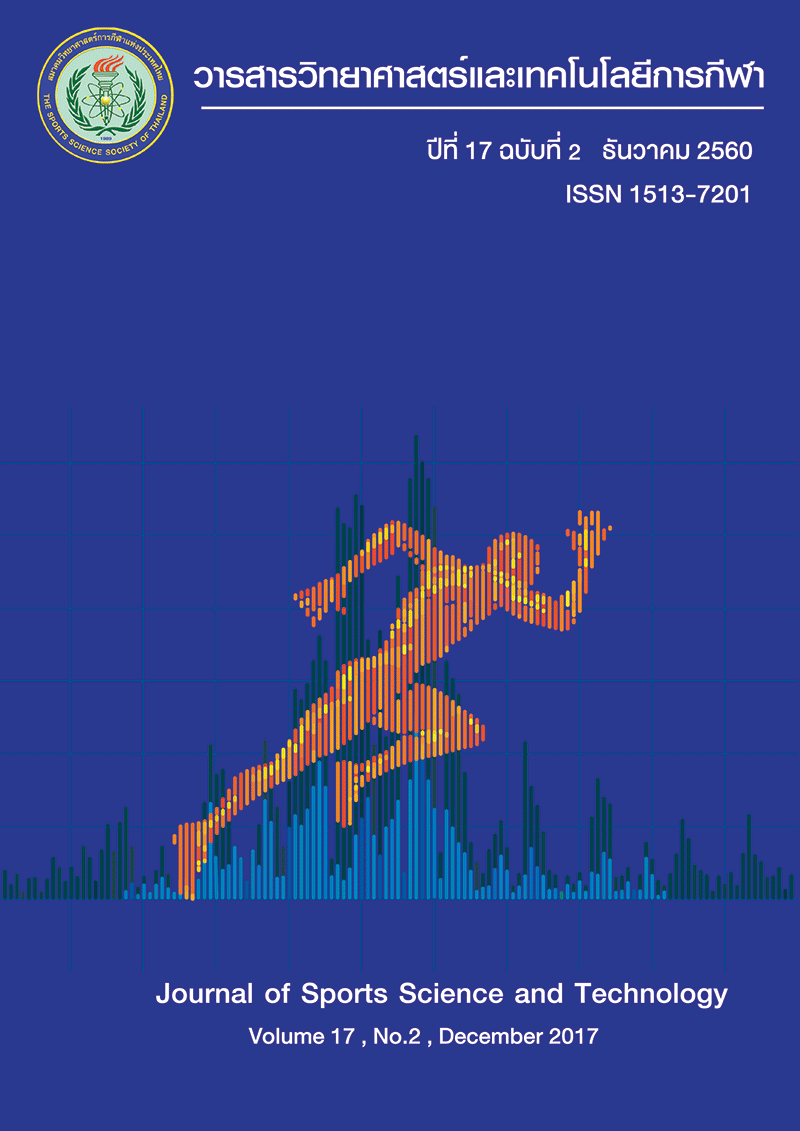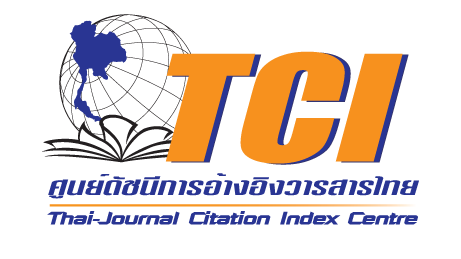THE ACUTE EFFECTS OF RHODIOLA CRENULATA ON SUBMAXIMAL EXHAUSTIVE PERFORMANCE UNDER HEAT STRESS
Keywords:
Rhodiola Crenulata / Supplement / Exercise Performance / Exercise in the heatAbstract
Introduction: Rhodiola crenulata is a traditional Chinese herb, which is widely used for health promotion in the Tibet and Himalayan areas. Rhodiola extract contains salidroside, a biologically active compound, which potentially has ergogenic and adaptogenic benefits, to decrease inflammation and improve exercise tolerance. Purpose: This study aimed to investigate the effects of Rhodiola crenulata on submaximal exercise performance and physiological responses under heat stress (~35.5±0.16°C and relative humidity of ~58.6±2.34%). Methods: Thirteen healthy males (aged, 20.9±1.7 yrs; body mass, 67.2±7.8 kg; height, 172.7±5.4 cm; peak oxygen consumption
O2peak, 49.0±3.4 mL.kg-1.min-1) volunteered to participate in this randomized, double-blind, crossover study. Participants completed three exercise sessions. On day 1,
O2peak was determined and used for establishing a workload of 70-75%
O2peak in the subsequent day 2 and 3. On day 2 and 3, participants were randomized to receive a single 500 milligrams dose of either Rhodiola crenulata (RC) or Placebo (PL) an hour before completing submaximal exhaustive treadmill running at 70-75%
O2peak under heat stress. Cardiac, respiratory, metabolic, and thermoregulatory responses, and ratings of perceived exertion, were measured before and during the test. Time to exhaustion (TTE), speed and distance covered were recorded at the end of testing. Results: Seven participants (out of 13) had a longer TTE and covered a greater distance when consuming RC extract although there was no significant difference between conditions (TTE: PL, 30.2±3.7 min; RC, 29.8±2.0 min., and distance covered: PL, 4.7±0.6 km; RC, 4.9±0.4 km, respectively). Physiological responses: cardiac, respiratory, metabolic and thermoregulatory functions were all similar at rest and during submaximal exercise between conditions (p>0.05). The perception of thermal sensation and discomfort were similar at rest and exhaustion. However, these subjective variables were rated significantly different in the 9th min (PL, 2.8±0.2; RC, 1.8±0.2, and PL, -2.5±0.2; RC, 1.6±0.2, p<0.05, respectively). Conclusion: Our finding suggests that a 500 mg acute single dose of RC has no additive beneficial effect on submaximal exhaustive performance compared to a placebo under heat stress.
(Journal of Sports Science and Technology 2017; 17(2): 83-95)
Keywords: Rhodiola Crenulata / Supplement / Exercise Performance / Exercise in the heat
*Corresponding author: Suthasinee Kongthongsung
College of Sports Science and Technology,
Mahidol University, Nakhon Pathom, Thailand. 73170
E-mail: suthasinee.kyo@gmail.com
References
2. Sawka M.N, Young A.J. Physiologic systems and their responses to conditions of heat and cold. In: Farrell P.A, Joyner M.J, Caiozzo V.J, editors. ACSM's advanced exercise physiology. 2nd ed. Philadelphia, United state: Lippincott Williams and Woilkins; 2012. p. 535-53. 3. Maughan R, Shirreffs S, Watson P. Exercise, heat, hydration and the brain. J Am Coll Nutr. 2007;26(5):S604-12.
4. Urso M, Clarkson P. Oxidative stress, exercise, and antioxidant supplementation. Toxicol. 2003;189(1):41-54.
5. Chen C.Y, Hou C.W, Bernard J.R, Chen C.C. Rhodiola crenulata- and Cordyceps sinensis-based supplement boosts aerobic exercise performance after short-term high altitude training. High Alt Med Biol. 2014;15(3):371-9.
6. Zhang Z.J, Tong Y, Zou J, Chen P.J, Yu D.H. Dietary supplement with a combination of Rhodiola crenulata and Ginkgo biloba enhances the endurance performance in healthy volunteers. Chin. J. Integr. Med. 2009;14(3):177-83.
7. Lee S.Y, Li M.H, Shi L.S, Chu H, Ho C.W, Chang T.C. Rhodiola crenulata extract alleviates hypoxic pulmonary edema in rats. Evid Based Complement Alternat Med. 2017 Aug 18. 2013;2013:ArticleID 718739;doi:10.1155/2013/718739.
8. Stejnborn S.A, Szczesniak L.P, Basta P, Smielecka E.D. The influence of supplementation with Rhodiola rosea L. extract on selected redox parameters in professional rowers. Int J Sport Nutr Exerc Metab. 2009;19(2):186-99.
9. Lee S.Y, Shi L.S, Chu H, Li M.H, Ho C.W, Lai F.Y, Huang C.Y, Chang T.C. Rhodiola crenulata and its bioactive components, salidroside and tyrosol, reverse the hypoxia-induced reduction of plasma-membrane-associated Na, K-ATPase expression via inhibition of ROS-AMPK-PKCξ pathway. Evid Based Complement Alternat Med. 2017 Aug 18. 2013:2013:Article ID 284150:doi:10.1155/2013/284150
10. Huang S.H, Lee F.T, Kuo T.Y, Yang J.H, Chien C.T. Attenuation of long-term Rhodiola rosea supplementation on exhaustive swimming-evoked oxidative stress in the rat. Chin J Physiol. 2009;52(5):316-24.
11. Lee F.T, Kuo T.Y, Liou S.Y, Chien C.T. Chronic Rhodiola rosea extract supplementation enforces exhaustive swimming tolerance. Am J Chin Med. 2009;37(3):557-72.
12. Bock D.K, Eijnde B.O, Ramaekers M, Hespel P. Acute Rhodiola rosea intake can improve endurance exercise performance. Int J Sport Nutr Exerc Metab. 2004;14:298-307.
13. Noreen E.E, Buckley J.G, Lewis S.L, Brandaue J, Stuempfle K.J. The effects of an acute dose of Rhodiola rosea on endurance exercise performance. J Strength Cond Res. 2013;27(3):839-47.
14. Abidov M, Grachev S, Seifulla R.D, Ziegenfuss T.N. Extract of Rhodiola rosea radix reduces the level of c-reacive protein and creatine kinase in blood. Bull Exp Biol Med. 2004;178(7):73-5. 15. Li D, Fu Y, Zhang W, Su G, Liu B, Guo M, Liang D, Liu Z, Zhang X, Cao Y, Zhang N, Yang Z. Salidroside attenuates inflammatory responses by suppressing nuclear factor-kappaB and mitogen activated protein kinases activation in lipopolysaccharide-induced mastitis in mice. Inflamm Res. 2013;62:9-15. 16. Chen S.P, Huang L.R, Lu T.M, Wei J.C, Wu T.C, Tsai W.Y, Tsai C.H, Yang C.C. Complementary usage of Rhodiola crenulata (L.) in chronic obstructive pulmonary disease patients: the effects on cytokines and T cells. Phytother Res. 2015;29(4):518-25.
17. Spasov A.A, Wikman G.K, Mandrikov V.B, Mironova I.A, Neumoin V.V. A double-blind, placebo-controlled pilot study of the stimulating and adaptogenic effect of Rhodiola rosea SHR-5 extract on on the fatigue of students caused by stress during an examination period with a repeated low-dose regimen. Phytomedicine. 2000;7(2):85-9.
18. Olsson E.M, von Schéele B, Panossian A.G. A randomised, double-blind, placebo-controlled, parallel-group study of the standardised extract SHR-5 of the roots of Rhodiola rosea in the treatment of subjects with stress-related fatigue. Planta med. 2009;75(2):105-12.
19. Shi L, Wang C, Zhou X, Zhang Y, Liu Y, Ma C. Production of salidroside and tyrosol in cell suspension cultures of Rhodiola Crenulata. Plant Cell Tissue Organ Cult. 2013;114:295-303.
20. Panossian A, Wikman G, Sarris J. Rosenroot (Rhodiola rosea): traditional use, chemical composition, pharmacology and clinical efficacy. Phytomedicine. 2010;17:481-93. 21. Chiu T.F, Chen L.L.C, Su D.H, Lo H.Y, Chen C.H, Wang S.H, Chen W.L. Rhodiola crenulata extract for prevention of acute mountain sickness: a randomized, double-blind, placebo-controlled, crossover trial. BMC Complement Altern Med. 2013;13(1):298.
23. Panossian A, Wagner H. Stimulating effect of adaptogens: an overview with particular reference to their efficacy following single dose administration. Phytother Res. 2005;19:819-38.
23. Walker T.B, Robergs R.A. Does Rhodiola rosea possess ergogenic properties? Int J Sport Nutr Exerc Metab. 2006;16(3):305-15.
24. Abidov M, Crendal F, Grachev S, Seifulla R.D, Ziegenfuss T.N. Effect of extracts from Rhodiola rosea and Rhodiola crenulata (Crassulaceae) roots on ATP content in mitochondria of skeletal muscles. Bull Exp Biol Med. 2003;136(6):585-7.
25. Walker T.B, Altobelli S.A, Caprihan A, Robergs R.A. Failure of Rhodiola rosea to alter skeletal muscle phosphate kinetics in trained men. Metabolism. 2007;56(8):1111-7. 26. Shanely R.A, Nieman D.C, Zwetsloot K.A, Knab A.M, Imagita H, Luo B, Davis B, Zubeldia J.M. Evaluation of Rhodiola rosea supplementation on skeletal muscle damage and inflammation in runners following a competitive marathon. Brain Behav Immun. 2014;39:204-10.
27. Xin T, Li X, Yao H, Lin Y, Ma X, Cheng R, Song J, Ni L, Fan C, Chen S. Survey of commercial Rhodiola products revealed species diversity and potential safety issues. Sci Rep. 2015;5.
28. Li T, He X. Quantitative analysis of salidroside and p-tyrosol in the traditional Tibetan medicine Rhodiola crenulata by Fourier Transform Near-Infrared Spectroscopy. Chem Pharm Bull. 2016;64(4):289-96.
29. Chinevere T.D, Cadarette B.S, Goodman D.A, Ely B.R, Cheuvront S.N, Sawka M.N. Efficacy of body ventilation system for reducing strain in warm and hot climates. Eur J Appl Physiol. 2008;103(3):307-14.
30. Duncan M.J, Clarke N.D. The effect of acute Rhodiola Rosea ingestion on exercise heart rate, substrate utilisation, mood state, and perceptions of exertion, arousal, and pleasure/displeasure in active men. J Sports Med. 2017 Aug 18. 2014:2014: ArticleID 563043: doi:10.1155/2014/563043.
31. Nielsen B, Nybo L. Cerebral changes during exercise in the heat. Sports Med. 2003;33(1):1-11. 32. Maughan R, Shirreffs S, Watson P. Exercise, heat, hydration and the brain. J Am Coll Nutr. 2007;26(5):S604-12.
33. Nybo L, Nielsen B. Perceived exertion is associated with an altered brain activity during exercise with progressive hyperthermia. J Appl Physiol. 2001;91(5):2017-23.







